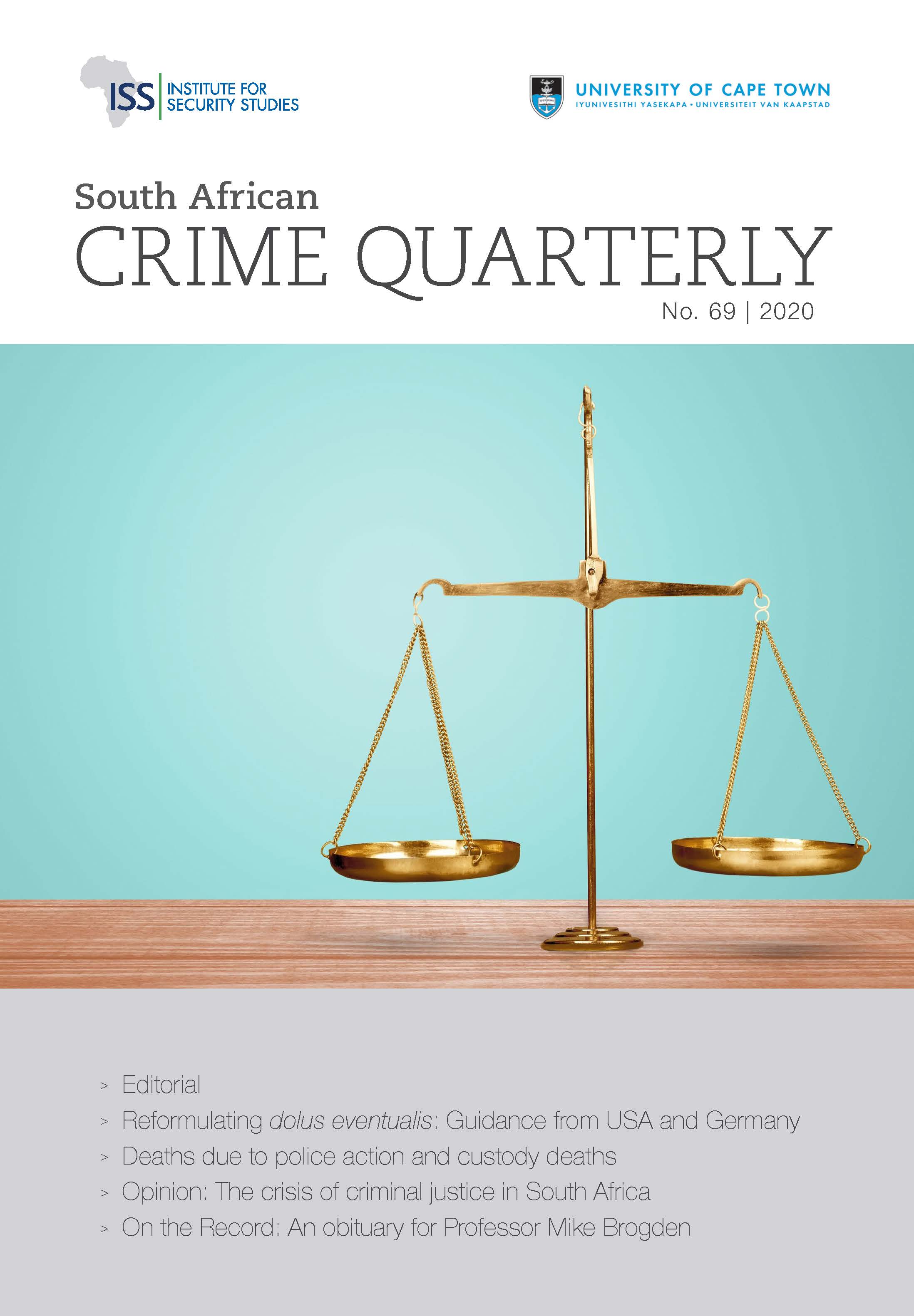The crisis of criminal justice in South Africa
DOI:
https://doi.org/10.17159/2413-3108/2020/i69a9253Abstract
This article builds on two lectures (delivered in 2017 and 2019 at the University of the Western Cape and the University of Cape Town respectively) that addressed a a controversial and often overlooked crisis in the criminal justice system – the minimum sentencing regime. The paper argues that minimum sentences are no response at all to curbing crime in South Africa and to making our people safe. The minimum sentencing regime is a misdirected, hugely costly and above all ineffective way of punishing criminals and dealing with crime. It has been an extravagant mistake of science, understanding, and policy and social response. The article summarises some of the arguments and considers why we are still stuck with minimum sentences when they are demonstrably useless and counterproductive. The author argues that the reasons lie in our broken history, in incoherent decision-making in our present political leadership, institutional incompetence, and the fact that minimum sentences themselves, through their false promise, divert us from finding more efficient solutions.
Downloads
Downloads
Published
Issue
Section
License
Copyright (c) 2020 Author and Institute for Security Studies/UCT

This work is licensed under a Creative Commons Attribution 4.0 International License.
SACQ is licenced under a creative commons licence (CC BY) that allows others to distribute, remix, tweak, and build upon your work, even commercially, as long a they give appropriate credit, provide a link to the license, and indicate if changes were made. They may do so in any reasonable manner, but not in any way that suggests the licensor endorses you or your use.
Copyright for articles published is vested equally between the author/s, the Institute for Security Studies and the Centre of Criminology (UCT).




.png)